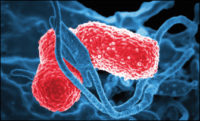If there is an upper limit to the human life span, we might not have reached it yet. The average life expectancy around the world has more than doubled since 1900, thanks to improvements in sanitation, health care, and food supply. Still, past studies have suggested that because of biological limits, only a handful of genetic outliers will live beyond 115 years old, such as the oldest verified person ever, Jeanne Calment, who died at age 122, in 1997. But a new study of nearly 4,000 Italian centenarians indicates that human longevity may be slowly increasing. According to established demographic data, after age 65, the probability of death doubles each year. The mortality rate begins to decelerate at age 80 and, the researchers found, seems to plateau at age 105. At that point, the chances of dying in a given year are roughly 50-50. Study authors say this plateauing might be because of biological factors: For instance, cell division slows after age 100, making centenarians less likely to develop cancer. That means that as more people make it to 105, more will likely make it to 115 and beyond. If mortality “stays constant,” co-author Jim Vaupel tells TheGuardian.com, the old-age “record will be broken.”
Related Posts
December 5, 2023
Vitamin C is Cancer’s Worst Adversary
Most people take Vitamin C to fend off a cold, but new research suggests it could also be a possible weapon in the fight against cancer. A team of researchers... continue reading
March 2, 2023
Why Bacteria Are Becoming Drug-Resistant
People suffering from bronchitis, flu, and other ailments often leave their doctor’s office with a prescription for antibiotics— even though in many cases... continue reading
January 17, 2023
The Chelation Miracle – EDTA & Cardio Advantage Plus
According to the Center for Disease Control and Prevention, cardiovascular disease, particularly heart attacks and strokes, are the number one disease killer... continue reading


